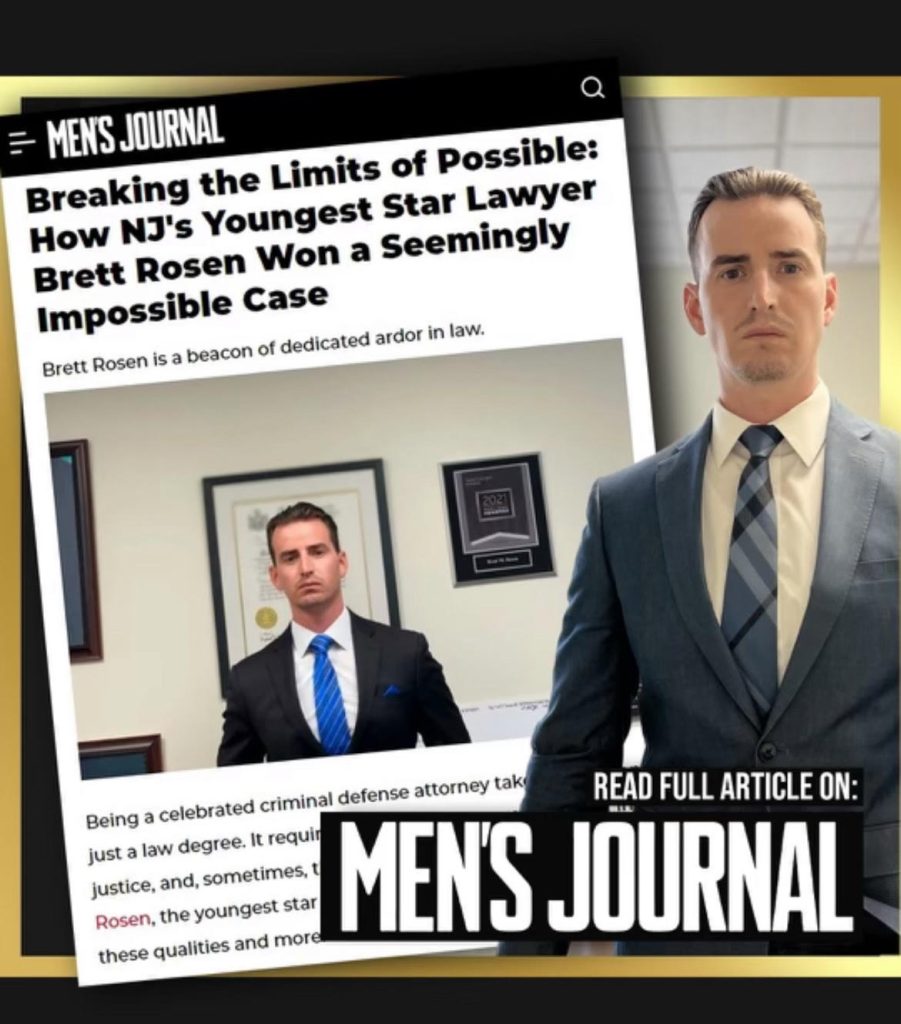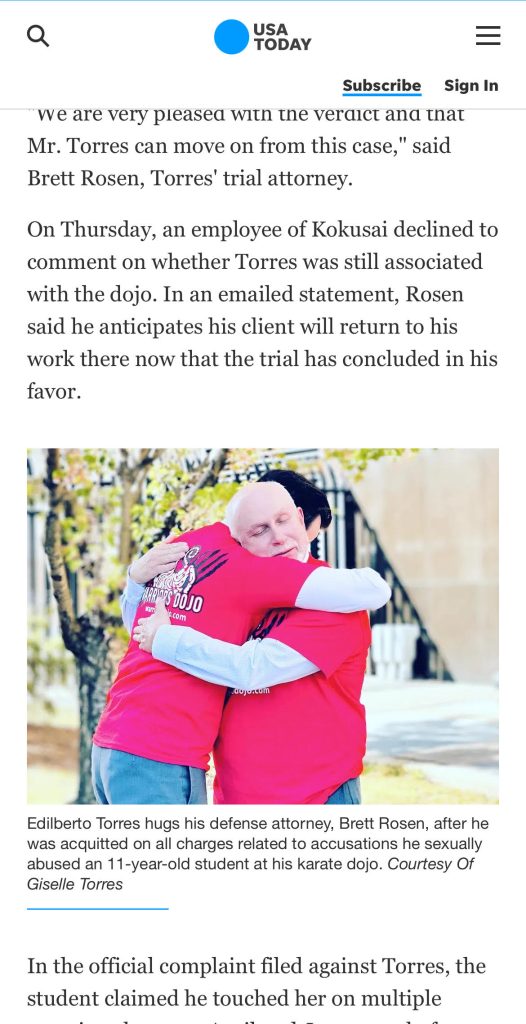Can You Use a Prior False Claim in New Jersey Sexual Assault Cases? A Comprehensive Guide by Brett M. Rosen, Esq.
Prior False Claim in New Jersey Sexual Assault Cases

Sexual assault cases are incredibly sensitive and complex. The stakes are high for both the accuser and the accused. In New Jersey, the question of whether a prior false claim of sexual assault can be used in court is a critical one, with significant implications for the defense. This comprehensive guide will delve into this complex issue, exploring the relevant laws, evidentiary rules, and strategic considerations involved in using prior false accusations in New Jersey sexual assault cases.
The “Rape Shield” Law in New Jersey
New Jersey, like many other states, has a “rape shield” law designed to protect victims of sexual assault. This law, codified in N.J.S.A. 2C:14-7, generally prohibits the introduction of evidence about a victim’s past sexual conduct. The purpose is to prevent the victim from being unfairly judged or harassed based on their sexual history and to encourage victims to come forward without fear of being re-victimized in court.
Exceptions to the Rape Shield Law
While the rape shield law provides important protections for victims, it’s not absolute. There are certain exceptions where evidence of past sexual conduct may be admissible, including:
- Evidence of Specific Instances of Sexual Behavior by the Victim to Prove that Someone Other than the Defendant Was the Source of Semen, Injury, or Other Physical Evidence: This exception allows the defense to introduce evidence that someone other than the defendant could have caused the physical evidence in question.
- Evidence of Prior Sexual Conduct with the Defendant to Prove Consent: If the defense is consent, evidence of prior sexual conduct between the victim and the defendant may be admissible to show a pattern of consensual behavior.
- Evidence the Exclusion of Which Would Violate the Defendant’s Constitutional Rights: This is a crucial exception that can allow for the introduction of a prior false claim if excluding it would unfairly prejudice the defendant.
Using Prior False Claims of Sexual Assault
The admissibility of a prior false claim of sexual assault falls under the third exception – the violation of the defendant’s constitutional rights. To successfully introduce this evidence, the defense must convince the court that:
- The prior claim was demonstrably false: There must be evidence that the prior accusation was fabricated or untrue.
- The prior claim is relevant to the current case: The prior false claim must have some bearing on the credibility of the accuser in the current case.
- Specificity: The prior false allegation must be specific and similar in nature to the current accusation. General claims of lying or dishonesty are not sufficient.
- The probative value of the evidence outweighs its prejudicial effect: The court will balance the importance of the evidence in helping the defense against the potential prejudice it could create against the accuser.
Establishing a Pattern of False Accusations:
If the defense can demonstrate a pattern of false accusations by the accuser, it can significantly strengthen their argument for admissibility. This might involve showing that the accuser has made similar false allegations against others in the past.
Case Law
New Jersey courts have addressed the admissibility of prior false accusations in several cases. For example, in State v. Guenther (181 N.J. 129 (2004)), the New Jersey Supreme Court held that evidence of a prior false accusation could be admissible if it was “relevant and material to the issue of the victim’s credibility.” Specifically, the Court noted the following factors for trial court to consider:
- whether the credibility of the victim-witness is the central issue in the case;
- the similarity of the prior false criminal accusation to the crime charged;
- the proximity of the prior false accusation to the allegation that is the basis of the crime charged;
- the number of witnesses, the items of extrinsic evidence, and the amount of time required for presentation of the issue at trial; and
- whether the probative value of the false accusation evidence will be outweighed by undue prejudice, confusion of the issues, and waste of time.
Procedural Steps for Introducing Prior False Claims
Introducing evidence of a prior false claim requires careful legal strategy and adherence to procedural rules:
- Investigate the Prior Claim: Thoroughly investigate the prior allegation to gather evidence of its falsity.
- Motion to Admit Evidence: The defense attorney must file a motion with the court, requesting permission to introduce the evidence. This motion must clearly explain the basis for admissibility and how the evidence is relevant to the case.
- Present Evidence: Present evidence at the hearing to demonstrate the relevance and admissibility of the evidence.
- In Camera Hearing: The court may hold an in camera hearing (a private hearing with the judge and attorneys) to review the evidence and determine its admissibility.
- Limited Admissibility: Even if the evidence is admitted, the court may limit how it can be used. For example, the court may instruct the jury that they can only consider the evidence for the limited purpose of assessing the accuser’s credibility, not as proof that the defendant is innocent.
Defenses in Sexual Assault Cases
In addition to challenging the credibility of the accuser, there are other common defenses in sexual assault cases:
- Consent: Arguing that the sexual encounter was consensual.
- Mistaken Identity: Claiming that the accuser has misidentified the defendant.
- Alibi: Providing evidence that the defendant was somewhere else at the time of the alleged assault.
- Insufficient Evidence: Arguing that the prosecution lacks sufficient evidence to prove the charges beyond a reasonable doubt.
- False Memory: Suggesting that the accuser’s memory of the events is inaccurate or distorted.
FAQs about Using Prior False Claims in New Jersey Sexual Assault Cases
Is it always possible to use a prior false claim in a sexual assault case?
- No. The admissibility of such evidence is subject to strict rules and judicial discretion. The defense must convince the court that the prior claim was demonstrably false, relevant to the current case, and that its probative value outweighs its prejudicial effect.
What kind of evidence is needed to prove a prior claim was false?
- This can vary depending on the circumstances. Evidence might include witness statements, recantations, inconsistencies in the accuser’s story, or evidence that the accuser had a motive to lie.
Can a prior false claim be used even if the accuser was never charged or convicted?
- Yes. The focus is on whether the prior claim was false, not whether it resulted in criminal charges or a conviction.
What are the risks of introducing evidence of a prior false claim?
- There is a risk that the jury may view the evidence negatively, potentially leading them to believe the defendant is attacking the victim. It’s a strategic decision that must be carefully weighed by the defense attorney.
What should I do if I am accused of sexual assault and the accuser has made false claims in the past?
- You should contact an experienced sexual assault defense attorney immediately. An attorney can investigate the accuser’s history, assess the admissibility of prior false claims, and build a strong defense strategy.
Additional FAQs
- Can any prior false statement be used to impeach a witness’s credibility?
- No. The false statement must be relevant to the case at hand. In sexual assault cases, prior false allegations of sexual assault are more likely to be considered relevant than other types of false statements.
- What if the prior false accusation was made when the accuser was a minor?
- The court will consider the age and maturity of the accuser at the time of the prior allegation, but it does not automatically preclude the evidence from being admissible.
- How can I prove that a prior accusation was false?
- This can be challenging, but evidence such as recantations, inconsistencies in the accuser’s statements, or proof that the accused was not involved can be used to demonstrate falsity.
- What if the prior false accusation was never reported to the police?
- Even if the prior accusation was not formally reported, it may still be admissible if there is sufficient evidence to prove its falsity and relevance.
- What should I do if I am accused of sexual assault?
- It is crucial to contact an experienced criminal defense attorney immediately. Do not speak to the police or anyone else about the case without first consulting with an attorney.
Why Choose Brett M. Rosen, Esq. for Sexual Assault Defense?

Sexual assault charges are incredibly serious and can have devastating consequences. Brett M. Rosen, Esq. is a skilled and experienced criminal defense attorney who understands the complexities of these cases. He will provide aggressive and compassionate representation, exploring all possible defenses, including the strategic use of prior false claims when appropriate. He will:
- Conduct a thorough investigation of the charges and the accuser’s history.
- Challenge the admissibility of any improper evidence.
- Protect your constitutional rights throughout the process.
- Negotiate with the prosecutor to seek a favorable resolution.
- Provide fearless representation in court if your case goes to trial.
If you are facing sexual assault charges in New Jersey, contact Brett M. Rosen, Esq. today for a free consultation. He is available 24/7 to discuss your case and provide expert legal guidance.
908-312-0368 & brett@nynjcriminalcivilesq.com
Disclaimer: This information is for informational purposes only and should not be considered legal advice. It is essential to consult with an attorney to discuss your specific legal situation.
